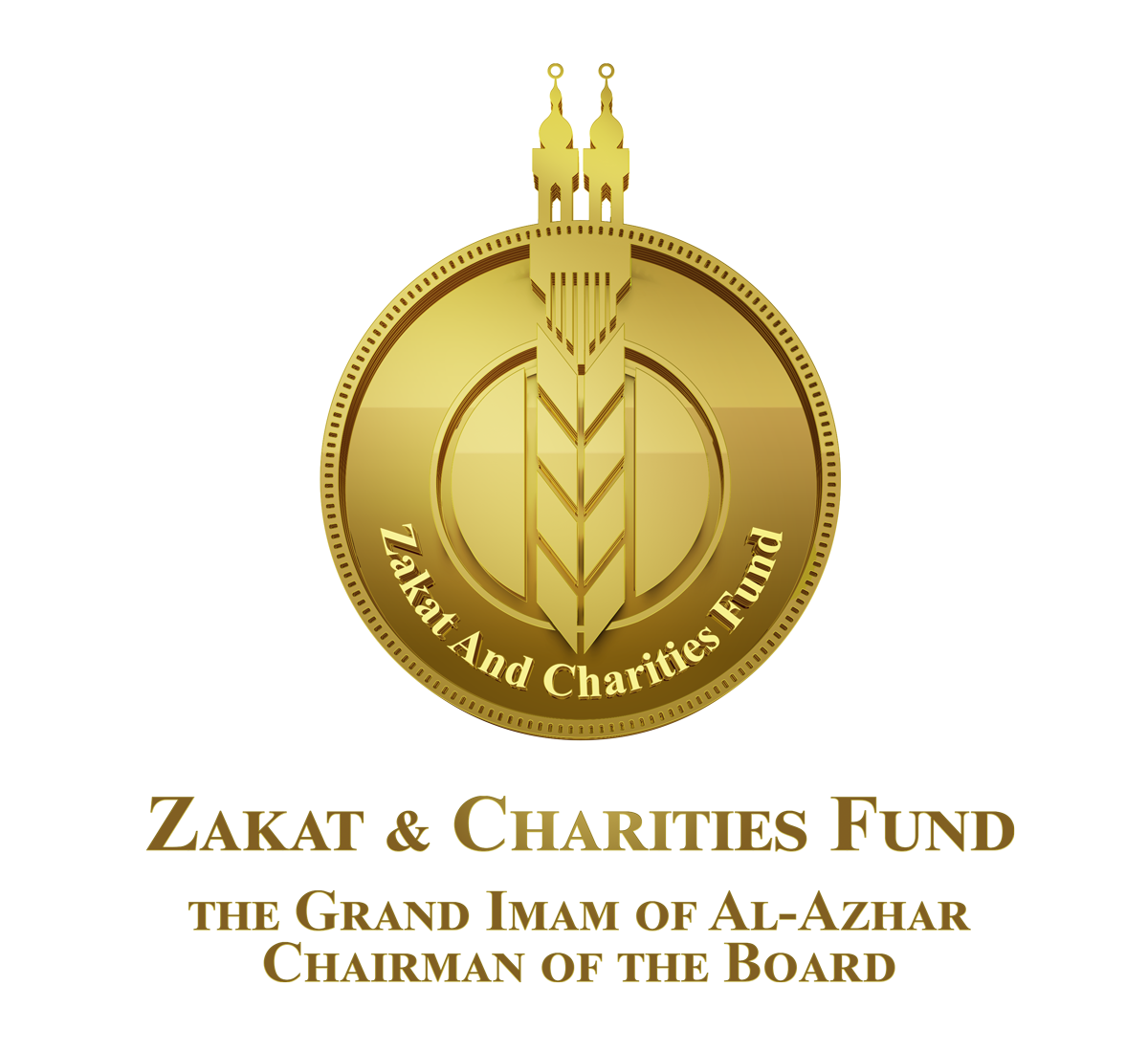Definition of Zakat, its significance and legal standing
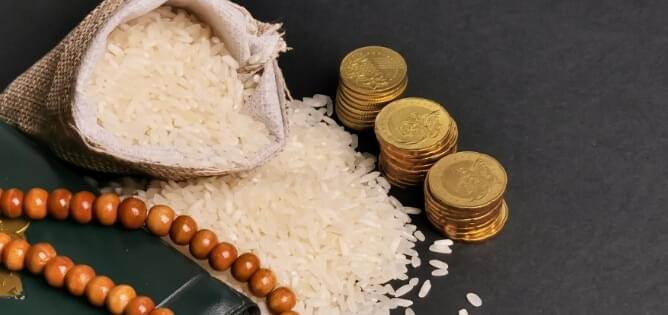
First: Definition of Zakat:
Linguistically, Zakat denotes growth, increase, and abundance. In Islamic terminology, it specifically refers to the prescribed portion of wealth to be given to those deserving, as ordained by Almighty Allah. It also includes the act of giving out that prescribed portion.

Second: Significance of Zakat in Islam
Zakat is one of the five pillars of Islam. It is so important that Allah Almighty frequently juxtaposes it with prayer in the Glorious Quran, including the verses that read, ”perform prayers and give alms,” (Q. 2: 110) and “they performed prayers and gave alms” (Q. 2: 227). Besides, Allah commended it to Jesus Christ and to our Prophet (pbuh). In his infancy, Jesus Christ stated, “Indeed, I am the servant of Allah . He has given me the Scripture and made me a prophet. And He has made me blessed wherever I am and has enjoined upon me prayer and zakah as long as I remain alive” (Q. 19: 30-31). The Prophet (pbuh), also said, “Islam was built on five [pillars]: The testimony that there is no deity but Allah and that Muhammad is the Messenger of Allah; that prayers be held, that Zakat be delivered, that Ramadan fasting be observed, and that pilgrimage [to Mecca] be performed by those can afford it.” (Agreed upon)

Third: The Reasoning Behind its Obligation
A Muslim pays Zakat due in their wealth as an act of obedience to Allah’s command, seeking His pleasure, and desiring its reward. However, Zakat also involves noble humanitarian objectives, high ethical values, and sublime spiritual virtues that benefit both the givers, the recipients, and the society.
1- 1- The benefit of giving out Zakat?
- • Allah accepts the deed of giving out Zakat and increases its reward for the giver.
- • It cleanses the giver’s soul from greed and miserable mammon worship.
- • It cleanses the giver’s soul from the stains of sins and transgression, as well as their detrimental bearings on the heart.
- • It is a training ground for the individual to maintain the virtues of generosity, munificence , and bountifulness.
- • It entails self-development for the wealthy givers and elevation in their status, as the upper (giving) hand is better than the lower (begging) hand..
- • It wins people's love for the giver.
- • It purifies wealth and protects it from damage.
- • It improves wealth, as Zakat is a multiplying blessing.
- • It distinguishes the obedient from the disobedient.
2- 2. Benefits for the Zakat recipient
- • Sparing the recipient of the humiliation of begging or indigence.
- • Purifying their hearts from the ills of envy and hatred towards the wealthy.
- • Nurturing a sense of belonging in them and thus encouraging them to benefit their community.
- • Closing the doors to societal evils.
3- 3. Benefits for the society
- Promoting the spirit of brotherhood, love, and affection.
- Promoting security and safety among the affluent members of society, regarding their wealth, and among the poor, in terms of their wellbeing..
- Manifesting the nation’s sublime values form and promoting sincere cooperation in righteousness and piety in it..
- Promoting virtues and preventing vices.
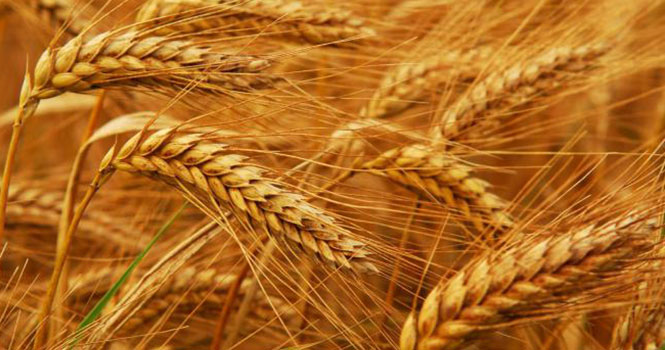
Fourth: Zakat Disbursement Channels
There are specifically eight Zakat disbursement channels. Those eight due recipients of Zakat are the poor, the needy, those employed to collect it, those [new converts] whose hearts are brought together for Islam, for freeing captives, those in debt, for the cause of Allah, and stranded travelers
These categories are identified in Almighty's saying, "Zakat expenditures are only for the poor and for the needy and for those employed to collect [Zakat] and for bringing hearts together [for Islam] and for freeing captives [or slaves] and for those in debt and for the cause of Allah and for the [stranded] traveler - an obligation [imposed] by Allah . And Allah is Knowing and Wise." (Q. 9: 60)
The share of some of the types mentioned in the noble verse has fallen, due to the lack of their place, not to abrogate their legal ruling, and their details will come in the third chapter.
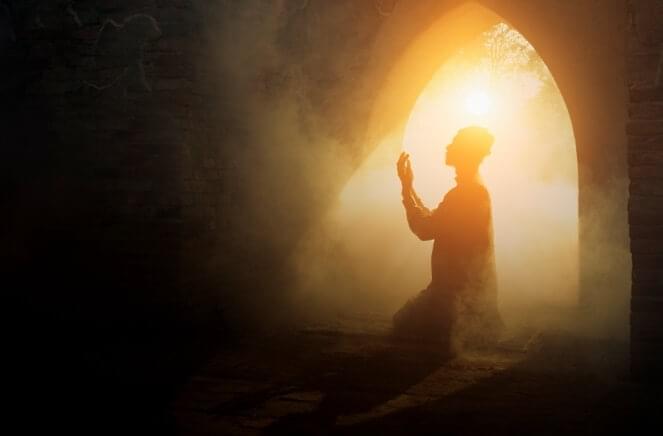
Fifth: Punishment of (intentional) non-payment of due Zakat
Allah indicates in the Glorious Quran that His mercy is inclusive and that he singled out the pious who give Zakat as the most entitled to it. So, whoever withholds due Zakat risks their entitlement to the mercy of Allah, Who says, "My mercy encompasses all things. So, I will decree it [especially] for those who fear Me and give Zakat" (Q. 7: 156)
Withholding due Zakat is compared to disbelief in the sense that disbelievers are ungrateful for the existence of Allah. The Almighty says, "I am only a man like you to whom it has been revealed that your god is but one God; so take a straight course to Him and seek His forgiveness. And woe to those who associate others with Allah - those who do not give Zakat, and in the Hereafter, they are disbelievers." (Q. 41: 6-7]. Such withholding is considered an act of disbelief in Allah and in the Hereafter, since those who withhold it are not fully sure of Allah’s Word and reward; otherwise, they would have given out such Zakat out of a desire for Allah’s reward and in avoidance of severe punishment. Such punishment is outlined in the verse that reads, “The Day when it will be heated in the fire of Hell and seared therewith will be their foreheads, their flanks, and their backs, [it will be said], “This is what you hoarded for yourselves, so taste what you used to hoard.”” (Q. 9: 35).
Zakat Conditions
(A) Full ownership of property (in which Zakat is due)
Full ownership of property means the owner’s unrestricted ability to dispose of their possessions.
(B) Profitability
Profitability means that wealth can grow literally or putatively. Literal growth occurs in livestock through breeding and production, in funds allocated for trade, and in agricultural land subject to tithing. Actual growth is not a requirement per se. It is sufficient to have the ability to invest in it, whether it is in one's possession or in the possession of an agent. However, putative growth indicates to the potential for value increase, such as gold and silver; their growth is intrinsic.
(c) Reaching Nisab
(Quorum)
The "Nisab" is the minimum amount of wealth on which Zakat is obligatory. The Nisab varies depending on the type of Zakatable wealth. For camels, the Nisab is five; for cattle, it is thirty; for sheep, it is forty; for gold and silver, it is two hundred silver dirhams; for crops and fruits, it is five "Wasaqs," an amount roughly equivalent to 260 kilograms, according to the majority opinion. For trade goods, the Nisab is estimated based on the Nisab of gold or silver.
Passing of a full lunar year (Hawl)
The term "Hawl" refers to the passing of a full lunar year with the Nisab-amounting wealth in the possession of the owner. Therefore, Zakat should be paid as soon as a lunar year passes, and it is not permissible to delay it without a valid excuse. It is permissible, however, to pay Zakat in advance in installments, when necessary, as was the case when a two-year Zakat amount was borrowed from Abbas (may Allah be pleased with him) in advance. Still, it is not permissible to defer the payment of Zakat beyond its due date or, in case of default, pay the deferred in instalments without a valid excuse.
Dropping of the Hawl requirement:- 1. Zakat is due on crops, minerals, and mining resources that are taken out of the land, even if the lunar year has not passed. In other words, if these items are extracted or obtained, Zakat becomes obligatory on them regardless of whether a full lunar year has passed since possession of them or not.
- 2. As for the profits of trade, Zakat is calculated according to the capital itself, including the revenue or profit as a corollary, which are included among the calculated assets whether a full lunar year has passed since their obtainment or not. In other words, if the capital has been possessed for a lunar year, Zakat is due on both that capital and the profits generated from it, regardless of whether a full lunar year has passed since acquisition of the profit or not.
3. If it is difficult to adhere to the lunar year for Zakat calculation due to aligning the company's or institution's financial year with the solar year, then the mentioned due percentage is increased by the ratio of the difference days between the solar and the lunar years, rising from 2.5% to 2.577%.
Types of Zakat
The various Zakat Types are as the follows: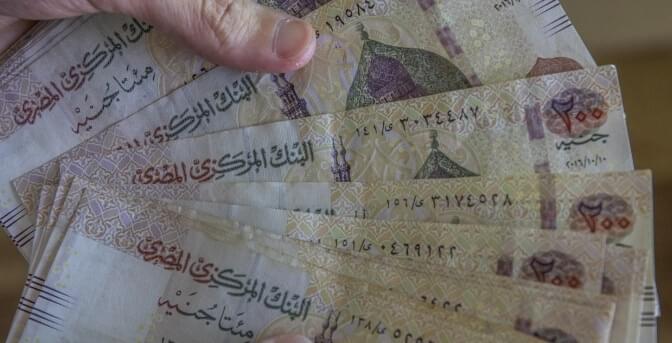
Zakat on banknotes
Regarding Zakat on banknotes, it is obligatory if their value reaches a minimum of eighty-five grams, 24
carats, gold, at a rate of 2.5% according to the lunar year or 2.577% according to the solar year.
Money saved at home included along with bank savings, stocks, or saved gold when calculating Zakat on
wealth.
As for Zakat on bank deposits, it is obligatory on the total amount at the end of the Hawl, whether
profits or other amounts are added to it or not.
. It is paid at a rate of one-quarter of one-tenth (2.5%) of the total amount. If the returns from this
deposit are not needed for necessary expenses on basic needs. If it is needed for necessary
expenditures, then one-tenth (10%) of the returns is paid whenever received, even if the returns are
received monthly.
Stocks and investment certificates are treated as articles of merchandise, and the Zakat amount on them
is determined based on their value and the applicable Zakat rates.
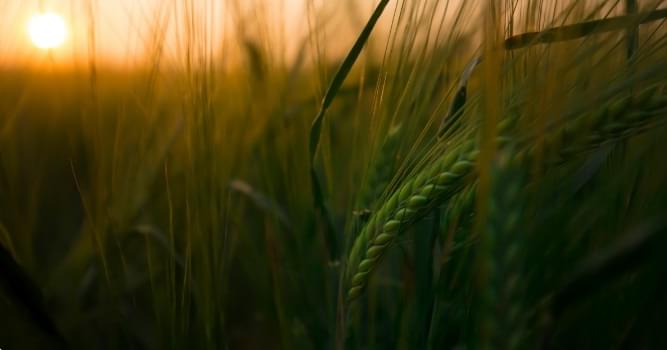
Zakat on crops and fruits
Zakat is obligatory on stored food grains, such as rice, wheat, barley, beans, lentils, and other staple
crops, like corn, chickpeas, and peas.
Zakat is also obligatory on two types of fruits: dates and grapes. It is due on them only if they reach
the minimum amount, which is approximately 612 kilograms, according to the majority opinion. The passing
of Hawl is not a requirement, and Zakat is payable upon harvest.
The Zakat rate on these crops is one-tenth (10%) if the irrigation is provided by natural rainfall
without any cost. If irrigation is done through cost or machinery, the Zakat rate is half of one-tenth
(5%). If half of the irrigation is done through machinery and the other half through natural rainfall,
the Zakat rate is 7.5%.
ه Zakat on articles of merchandise
This refers to Zakat on trade goods Owned with clear intention to sell for profit. . The following are prerequisites, besides the other general conditions, for Zakat to be obligatory:
On the Zakat due date, the person bound to pay Zakat assesses their trade inventory, the value of the
articles, possessed cash (whether utilized for trade or not), and any receivable debts. They then subtract
the debts owed to others, and finally pay Zakat on the remaining amount at a rate of one-quarter of
one-tenth (2.5%).
This can be summarized in the following equation: Zakat amount = (Value of goods at selling price + Cash
in hand, in cash register, or bank + receivable debts - debts incurred by Zakat payer) × (2.5% Zakat rate
by lunar year or 2.577 by solar year).
Each trader evaluates their Zakat based on this equation, whether they be a wholesale or a retail trader.
The average price is used for those who are both wholesale and retail traders.
Zakat on Livestock
Zakat is obligatory on camels, cows, and sheep according to the consensus of Muslim scholars. However, there is a difference in opinion regarding horses. As for mules, donkeys, and other types of animals, Zakat is binding only when they are possessed for trade purposes. There are two prerequisites for livestock Zakatability, besides the passing of one lunar year and the livestock reaching the minimum amount (Nisab);
The first prerequisite is that the animals are freely grazing. If they are fed with cultivated fodder, Zakat is not obligatory in them. The second is that the animals should not be used for work. Camels prepared for carrying loads, riding, or serving as milch animals, as well as oxen used for tilling or irrigation, are not liable to Zakat even if they meet the other conditions.
Zakat on livestock is assessed as follows
For more than 40 camels, one Bint Labun is due, and for every 50 one Hiqqah is due.
For more than 40 camels, one Bint Labun is due, and for every 50 one Hiqqah is due.
Here, Ibn Makhad or Bint Makhad means a one-year-old he/she-camel already starting its second year, while Ibn or Bint Labun is a two-year-old camel already starting its third year, a Hiqq or Hiqqah is a three-year-old camel already starting its fourth year, and a Jadh‘ah is a four-year-old camel already starting its fifth year. Starting a new year as a requirement every given-out camel is agreed upon by jurists with the exception of the Hanbalis.
This table applies up to 120 camels, based on the narration of Anas, as agreed upon. However, there are different opinions regarding the case when the camels are between 121 and 129 animals. Yet, what is stated in the table is congruent with the Shafi'i opinion, and one of the opinions reported in the Hanbali school, as maintained by Al-Awza’i and Is-haq.
The Zakat due for animals is sheep as follows:
In every hundred sheep or more, one sheep is due. There are different opinions among the majority of jurists regarding this matter.
However, sheep are not payable as Zakat for Nisab-amounting camels, except under certain conditions. According to the Hanafi school, the sheep eligible as Zakat are those in their second year, whether they be goats or sheep. It is also required that they be free from defects, even if the camels subject to Zakat have defects. The Malikis state that the sheep eligible for Zakat must be a one-year-old male or female sheep (Jadh'(ah)), regardless of whether it is a goat or a sheep. The Shafi'is, however, indicate that for sheep to be eligible for Zakat, if they are sheep (Dha’n) they must complete one year, unless they shed their baby teeth six months after birth, in which case they are eligible for Zakat even if they be less than one year old. If they are goats (Ma'iz), they must be in their third year. In both cases, the sheep must be healthy, even if the camels for which Zakat is paid are defective.
According to the Hanbalis, the following is to be maintained,
- For sheep to be eligible for Zakat, if they be Dha’n (sheep), they must be at least six months old. If they are from the category of goats, they must complete a full year.
- The sheep being paid as Zakat must be free from defects that make them ineligible for Udhiyah (sacrifice). However, if the camels for which Zakat is being paid are sick, the value of the sheep is reduced by the same percentage as the reduction in value of the sick camels as compared to healthy ones. For example, if a person has five camels and their value when sick is 80 pounds, and if they were healthy, their value would be 100 pounds, then the reduction due to sickness is one-fifth. If the sheep given out as Zakat are worth five pounds, then the sheep given for the sick Zakatable camels would be only worth four.
- Regarding which category of livestock can be paid as Zakat, if the majority of livestock in a locality is sheep, then Zakat should be given out in sheep. However, if the livestock of a Zakat payer is different, then it should be given out from the category he owns. If both sheep and goats are equally available in a locality, the Zakat payer can choose to give the Zakat from either.
- The sheep being given as Zakat must be free from defects. It is not permissible to give defective animals as Zakat unless the giver believes they are more beneficial to the poor due to their greater weight; in which case it is allowed to give them as Zakat. However, the Malikis claim that the payer is not obliged to do so in this case.
تعريف الزكاة ومنزلتها ومشروعيتها

أولًا: تعريف الزكاة
هي النماء والريع والزيادة، من زكا يزكو زكاة وزكاء وتطلق في الاصطلاح على الحصة المقدرة من المال التي فرضها الله للمستحقين, كما تطلق.على نفس إخراج تلك الحصة

ثانيًا: منزلة الزكاة في الإسلام
الزكاة أحد أركان الإسلام الخمسة، ولأهميتها ذكرها الله تعالى في القرآن الكريم مقرونة
بالصلاة في مواضع كثيرة، منها
قوله تعالى: وَأَقِيمُوا الصَّلَاةَ وَآتُوا الزَّكَاةَ? [البقرة: 110] ومنها قوله
تعالى: وَأَقَامُوا الصَّلَاةَ وَآتَوُا الزَّكَاةَ [البقرة: 277]، حتى وصى الله بها
عيسى عليه وعلى نبينا الصلاة والسلام فنطق بها في مهده، قال تعالى: قَالَ إِنِّي عَبْدُ
اللَّهِ آتَانِيَ الْكِتَابَ وَجَعَلَنِي نَبِيًّا وَجَعَلَنِي مُبَارَكًا أَيْنَ مَا
كُنْتُ وَأَوْصَانِي بِالصَّلَاةِ وَالزَّكَاةِ مَا دُمْتُ حَيًّا [مريم: 30- 31].
وقال النبي صلى الله عليه وسلم: «بني الإسلام على خمس: شهادة أن لا إله إلا الله، وأن
محمدًا رسول الله، وإقام الصلاة، وإيتاء الزكاة، وصوم رمضان، وحج البيت لمن استطاع إليه
سبيلًا» [متفق عليه]

ثالثًا: حكمة مشروعيتها
يُؤدِّي المسلم زكاة ماله امتثالًا لأمر الله تعالى، وطلبًا لمرضاته، ورغبةً في ثوابه، ومع ذلك فللزكاة أهداف إنسانية جليلة، ومُثُل أخلاقية عالية، وقيم روحية سامية ترجع بالخير على المعطي والآخذ والمجتمع
1- ما يعود على المزكي.
- قبول الله لها وتنميتها لصاحبها.
- تطهير الروح من رذيلة الشح، ومن تعاسة العبودية للدنيا والدرهم.
- تزكية النفس من أوضار الذنوب والآثام، وآثارهما السيئة على القلوب.
- تدريب للإنسان على خلق البذل والعطاء والإنفاق.
- تنمية لشخص الغني وإعلاء لمكانته، فاليد العليا خير من اليد السفلى.
- سبب لمحبة الناس.
- تطهير للمال وتحصين له من الآفات.
- تنمية للمال، فالزكاة بركة ترجع على المال بالمضاعفة.
- تمييز للطائعين عن العصاة.
2- ما يعود على الآخذ:
- تحرير الآخذ من ذل المسألة والضياع.
- تطهير من داء الحسد والكراهية لأصحاب الأموال.
- غرس الانتماء في نفسه لسؤال المجتمع عنه.
- سد أبواب الشرور المجتمعية.
3- ما يعود على المجتمع:
- إشاعة روح الأخوة والمحبة والمودة.
- نشر الأمن والاطمئنان بين أفراد المجتمع الغني على ماله، والفقير على نفسه.
- إظهار روح الأمة في مثلها العليا وتعاونها الصادق على البر والتقوى.
- نشر الفضائل ومنع الرذائل.

رابعًا: مصارف الزكاة
مصارف الزكاة ثمانية محددة على سبيل الحصر؛ فلا تصرف في غير مصارفها، وهي: الفقراء،
والمساكين، والعاملون عليها، والمؤلفة قلوبهم، وتحرير الرقاب، والغارمون، وفي سبيل
الله، وابن السبيل
وهم المشار إليهم في قوله تعالى: ?إِنَّمَا الصَّدَقَاتُ لِلْفُقَرَاءِ وَالْمَسَاكِينِ
وَالْعَامِلِينَ عَلَيْهَا وَالْمُؤَلَّفَةِ قُلُوبُهُمْ وَفِي الرِّقَابِ
وَالْغَارِمِينَ وَفِي سَبِيلِ اللَّهِ وَاِبْنِ السَّبِيلِ فَرِيضَةً مِنَ اللَّهِ
وَاللَّهُ عَلِيمٌ حَكِيمٌ? [التوبة: 60]
وقد سقط سهم بعض الأصناف المذكورة في الآية الكريمة، لعدم وجود محلها، لا لنسخ حكمها
الشرعي، وسيأتي تفصيلها في الفصل الثالث

خامسًا: عقوبة مانعها
بيَّن الله تعالى في كتابه العزيز أن رحمته واسعة؛ وأنه خص بها الأتقياء المعطين
الزكاة، فالذي يمنع الزكاة يخشى عليه الابتعاد عن رحمة الله؛ قال تعالى: ?وَرَحْمَتِي
وَسِعَتْ كُلَّ شَيْءٍ فَسَأَكْتُبُهَا لِلَّذِينَ يَتَّقُونَ وَيُؤْتُونَ الزَّكَاةَ?
[الأعراف: 156]
وفي منع الزكاة تشبُّهٌ من وجه بغير المؤمنين الجاحدين لوجود الله، قال تعالى: ?قُلْ
إِنَّمَا أَنَا بَشَرٌ مِّثْلُكُمْ يُوحَى إِلَيَّ أَنَّمَا إِلَهُكُمْ إِلَهٌ وَاحِدٌ
فَاسْتَقِيمُوا إِلَيْهِ وَاسْتَغْفِرُوهُ وَوَيْلٌ لِّلْمُشْرِكِينَ @ الَّذِينَ لاَ
يُؤْتُونَ الزَّكَاةَ وَهُم بِالآخِرَةِ هُمْ كَافِرُونَ? [فصلت: 6-7]، وإنما كان منعها
من شأن المشرك بربه؛ لأنه يؤثر المال على حبه، وقد قرن منع الزكاة بالكفر بالآخرة؛
لأنهم لو كانوا واثقين بخبر الله، ومؤمنين بجزائه، لأنفقوا من مالهم رغبة في ثوابه،
وخوفًا من عقابه الأليم لتارك الزكاة، والذي بيَّنه الله تعالى في قوله الكريم: ?يَوْمَ
يُحْمَى عَلَيْهَا فِي نَارِ جَهَنَّمَ فَتُكْوَى بِهَا جِبَاهُهُمْ وَجُنُوبُهُمْ
وَظُهُورُهُمْ هَذَا مَا كَنَزْتُمْ لأَنفُسِكُمْ فَذُوقُوا مَا كُنتُمْ تَكْنِزُونَ?
[التوبة: 35]
شروط الزكاة
(أ) الملك التام
وهو قدرة المالك على التصرف بما يملك تصرفًا تامًّا دون استحقاق للغير.
(ب) النماء
بمعنى أن يكون المال ناميا حقيقة أو تقديرًا، والنماء الحقيقي يكون في السوائم بالدَّر والنسل، وفي الأموال المعدة للتجارة، والأرض الزراعية العشرية، ولا يشترط تحقق النماء بالفعل بل تكفي القدرة على الاستنماء بكون المال في يده أو يد وكيله. ويقصد بالنماء التقديري قابلية المال للزيادة كالذهب والفضة، إذ نماؤهما مستجلب من أصل خِلقتهما
(ج) بلوغ النصاب
والنصاب هو مقدار المال الذي لا تجب الزكاة في أقل منه، وهو يختلف باختلاف أجناس الأموال الزكوية؛ فنصاب الإبل خمس منها، ونصاب البقر ثلاثون، ونصاب الغنم أربعون، ونصاب الذهب ونصاب الفضة مائتا درهم، ونصاب الزروع والثمار خمسة أوسق، وهو يساوي اثنى عشر وستمائة (612) كيلو جرامًا عند الجمهور، ونصاب عروض التجارة مُقَدَّرٌ بنصاب الذهب أو الفضة
إتمام الحول (عام قمري)
والمراد بالحول أن تمر على المال بيد صاحبه سنة قمرية كاملة، وبذلك يكون إخراج الزكاة فور تمام العام الهجري، ولا يجوز تأخيرها بغير عذر، ويجوز إخراج الزكاة تقسيطًا مُقَدَّمًا عند الحاجة إليها كما كان الحال من اقتراض الزكاة من العباس رضي الله عنه لسنتين، ولا يجوز إخراجها بعد استحقاقها تقسيطًا بغير عذر
ويستثنى من اشتراط الحول في الأموال الزكوية:- الخارج من الأرض من الغلال الزراعية، والمعادن، والركاز، فتجب الزكاة في ذلك ولو لم يَحُلْ الحول.
- ما كان تابعاً للأصل: كربح التجارة، فإن حولها حول أصلها، فلا يشترط مرور الحول عليها بمفردها
أما إذا تعسر مراعاة الحول القمري -بسبب ربط الميزانية للشركة أو المؤسسة بالسنة الشمسية- فتزداد النسبة المذكورة بنسبة عدد الأيام التي تزيد بها السنة الشمسية على السنة القمرية، فتكون النسبة عندئذ 2.577 %
أصناف الزكاة
تتعدد أصناف الزكاة على النحو التالي
زكاة الأوراق النقدية
تجب إذا بلغ نصابها ما قيمته خمسة وثمانون جرامًا من الذهب عيار واحد وعشرين، بواقع (2.5%) نسبة الزكاة حسب الحول القمري، أو (2.577) حسب الحول الشمسي.
ويُضَمُّ المال المدخر في المنزل إلى المُدَّخر في البنوك أو الأسهم أو الذهب المدخر عند احتساب زكاة المال
أما زكاة الودائع البنكية فتجب على إجمال المبلغ الموجود في نهاية العام سواء أكانت تضاف له أرباحه أو أموال أخرى أو لا تضاف له أية مبالغ
وتجب بنسبة ربع العشر (2.5%) من إجمالي المبلغ. إذا كانت عوائد هذه الوديعة لا يحتاج إليها في النفقة الضرورية على الحاجات الأصلية، وإن بلغت الحاجة إلى تلك الأرباح في الإنفاق الضروري على الحاجات الأصلية، فتخرج بنسبة العشر (10%) من العائد كلما قبض، وإن كان قبض العائد شهريًّا
وتُعامل أموال الأسهم وشهادات الاستثمار أيًّا كانت عملتها كعروض التجارة، ومقدار الزكاة فيها 2.5%

زكاة الزروع والثمار
والمحاصيل التي تجب فيها الزكاة هي ما يُخَزَّنُ من الأقوات كالأرز، والقمح، والشعير، والفاصوليا، والعدس، وسائر ما يُقتات اختيارًا كالذرة والحمص والباقلاء
وكذلك تجب الزكاة في ثمرتين فقط من الفاكهة، وهما: التمر بكل أنواعه، والعنب بكل أنواعه. ولا تجب الزكاة في هذه المحاصيل إلا إذا بلغت النصاب وقدره خمسة أواسق، أي: نحو 612 كيلو جرام على مذهب الجمهور، ولا يشترط مرور العام الهجري وإنما تجب بمجرد الحصاد
وتجب الزكاة في هذه المحاصيل بنسبة العشر (10%) إن كانت الأرض تسقى بماء السماء بغير آلة وكلفة. وتجب بنسبة نصف العشر (5%) إن كانت تسقى بالكلفة أو بالآلة، وإن كان نصفها يسقى بالآلة والنصف الآخر بماء السماء فتخرج نسبة (7.5%)
زكاة عروض التجاره
هي الزكاة على مال تَمَلُّك بعقد معاوضة محضة؛ بقصد البيع؛ لغرض الربح. ويشترط لوجوب الزكاة فيها- مع الشروط العامة- ما يلي
وفي موعد الزكاة يقوم المزكي بجرد تجارته، ويُقوِّم البضاعة الموجودة، ويُقَوِّم ما لديه من نقود- سواء استغلها في التجارة أم لم يستغلها- ويضيف إليها ما له من ديون مرجوة السداد، ثم يطرح منها الديون التي عليه لأشخاص أو لجهات أخرى، ثم يزكي الباقي بنسبة ربع العشر (2.5%)
ويمكن إيجاز ذلك في المعادلة التالية
مقدار الزكاة= (قيمة البضاعة الموجودة بسعر البيع + السيولة النقدية بالصندوق أو البنك + الدين المرجو سداده – الديون التي على المزكي للغير) × (2.5% نسبة الزكاة حسب الحول القمري، أو 2.577 حسب الحول الشمسي)
ويكون التقويم لكل تاجر بحسبه سواء أكان تاجر جملة أم تاجر تجزئة، والسعر المتوسط لمن يبـيع بالجملة والتجزئة معًا
زكاة الثروة الحيوانية
تكون في الإبل والبقر والغنم بإجماع علماء المسلمين، وفي الخيل خلاف، وأما البغال والحمير وغيرها من أصناف الحيوان فليس فيها زكاة ما لم تكن للتجارة ويشترط شرطان في الماشية لوجوب الزكاة فيها، فضلا عن تمام الحول، وكونها نصابا فأكثر
الأول: السوم: ويقصد به أن يكون غذاؤها على الرعي من نبات البر، فلو كانت معلوفة لم تجب فيها الزكاة
والثاني: أن لا تكون عاملة، فالإبل المعدة للحمل والركوب، والنواضح، وبقر الحرث والسقي لا زكاة فيها ولو كانت سائمة
(أ) وتؤخذ زكاة الحيوان على النحو التالي
وهكذا فيما زاد، في كل 40 بنت لبون، وفي كل 50 حقة
وابن أو بنت مخاض ما بلغ من الإبل سنة ودخل في الثانية، وابن أو بنت لبون ما أتم سنتين ودخل في الثالثة، والحِقُّ أو الحِقَّة ما أتم ثلاث سنين ودخلت في الرابعة، والجذع أو الجذعة ما أتم أربع سنين ودخل في الخامسة، واشتراط الدخول في السنة الثانية أو الثالثة أو الرابعة متفق عليه، إلا عند الحنابلة فإنهم يكتفون ببلوغ السن إلى السنة الثانية ولا يشترطون الدخول في الثالثة
وهذا الجدول أوله إلى 120 مجمع عليه، لتناول حديث أنس له، وعدم الاختلاف في تفسيره، واختلف فيما بين 121 – 129، وما هو مثبت جار على مذهب الشافعية، ورواية في مذهب الحنابلة، وهو قول الأوزاعي وإسحاق
(ب) المقادير الواجبة في زكاة البقر
وهكذا في كل ثلاثين تبيع أو تبيعة، وفي كل أربعين مسنة، وعلى هذا تجري مذاهب جماهير العلماء، وفي ذلك خلاف في بعض المواضع والتبيع ما أوفى من البقر سنة ودخل في الثانية، والمسنة ما أوفت سنتين ودخلت في الثالثة، وتعريف التبيع والمسنة بهذا متفق عليه إلا عند المالكية قالوا: التبيع هو ما أوفى سنتين ودخل في الثالثة، أما المسنة فهي ما أوفت ثلاث سنين ودخلت في الرابعة
(ج) المقادير الواجبة في زكاة الغنم
وهكذا ما زاد عن ذلك في كل مائة شاةٍ شاةٌ مهما كان قدر الزائد
وعلى هذا تجري مذاهب جمهور الفقهاء، وأول هذا الجدول وآخره مجمع عليه، واختلف فيه فيما بين ( 300 – 399 )
هذا ولا تجزئ الشاة في الزكاة عن الإبل إلا بشروط، فعند الحنفية قالوا : الشاة التي تجزئ في الزكاة ما أتمت سنة ودخلت في الثانية معزا كانت أو ضأنا، ويشترط أن تكون سليمة من العيوب، ولو كانت الإبل المزكاة معيبة
والمالكية قالوا: الشاة التي يجزئ إخراجها في الزكاة لا بد أن تكون جذعة أو جذعا بلغ كل منهما سنة تامة سواء كانت من الضأن أو المعز
والشافعية قالوا: الشاة التي تجزئ في الزكاة إن كانت ضأنا وجب أن تتم سنة إلا إذا أسقطت مقدم أسنانها بعد مضي ستة أشهر من ولادتها، فإنها تجزئ وإن لم تتم الحول، وإن كانت من المعز فيشترط أن تتم سنتين وتدخل في الثالثة، ولا بد في كل منها من السلامة وإن كانت الإبل التي يخرج زكاتها معيبة
والحنابلة قالوا: الشاة التي تجزئ في الزكاة إن كانت من الضأن فيشترط أن تتم ستة أشهر، وإن كانت من العز اشترط فيها تمام سنة كاملة. ويجب أن تكون الشاة المخرجة سليمة من العيوب التي تمنع من إجزائها في الأضحية إلا أنه إذا كانت الإبل المخرج عنها مريضة تنقص قيمة الشاة بنسبة نقص قيمة الإبل المريضة عن الإبل الصحيحة، مثلا إذا كان عند الشخص خمس من الإبل تساوي لمرضها ثمانين جنيها، ولو كانت صحيحة لكانت قيمتها مائة، فيكون نقص المريضة عن الصحيحة الخُمْس، فلو كانت الشاة التي تخرج عن الإبل الصحيحة تساوي خمسا، فالتي تخرج عن الإبل المريضة شاة صحيحة تساوي أربعا فقط
وفي إخراج الواجب من أي الصنفين تفصيل حاصله: أنه يتعين إخراج الشاة من الضأن إن كان أكثر غنم أهل البلد الضأن، ولو كانت غنم المزكي بخلاف ذلك، وإن كان أكثر الغنم في بلد المزكي هو المعز فالواجب إخراج الشاة منه إلا إذا تبرع بإخراجها من الضأن فيكفيه ذلك، وإن تساوى الضأن والمعز في البلد خُيِّر الساعي في أخذ الشاة من الضأن أو المعز، ويجب أن تكون الشاة التي يخرجها سليمة من العيوب فلا يجزئ إخراج المعيبة إلا إذا رأى الساعي أنها أنفع للفقراء لكثرة لحمها مثلا فيجزئ إخراجها لكن لا يجبر المالك على دفعها



